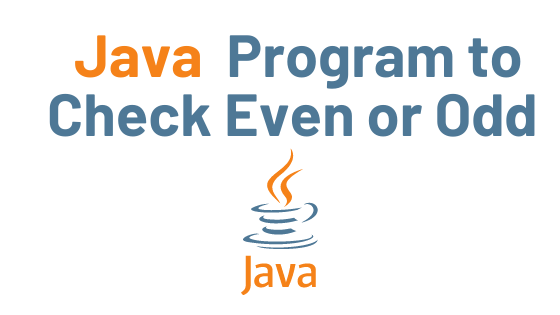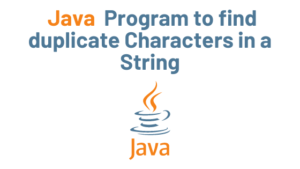In this tutorial, you will learn about a java program to check even or odd numbers with example.
In this tutorial, you will learn about a java program to check even or odd numbers with example.
class CheckEvenOdd
{
public static void main(String args[])
{
int num;
System.out.println("Enter an Integer number:");
//The input provided by user is stored in num
Scanner input = new Scanner(System.in);
num = input.nextInt();
/* If number is divisible by 2 then it's an even number
* else odd number*/
if ( num % 2 == 0 )
System.out.println("Entered number is even");
else
System.out.println("Entered number is odd");
}
}
Output:
Enter an Integer number:
78
Entered number is even
Enter an Integer number:
77
Entered number is odd
Annotations in Java are used to provide metadata for your Java code. Because they are metadata, Java annotations do not directly affect the execution of your code, though some types of annotations can. Java annotations were introduced in Java 5 and are still in use today. Annotations in Java are used to provide metadata for your Java code. Because they are metadata, Java annotations do not directly affect the execution of your code, though some types of annotations can. Java annotations were introduced in Java 5 and are still in use today. Annotations in Java are used to provide metadata for your Java code. Because they are metadata, Java annotations do not directly affect the execution of your code, though some types of annotations can. Java annotations were introduced in Java 5 and are still in use today. Annotations in Java are used to provide metadata for your Java code. Because they are metadata, Java annotations do not directly affect the execution of your code, though some types of annotations can. Java annotations were introduced in Java 5 and are still in use today. Annotations in Java are used to provide metadata for your Java code. Because they are metadata, Java annotations do not directly affect the execution of your code, though some types of annotations can. Java annotations were introduced in Java 5 and are still in use today. Annotations in Java are used to provide metadata for your Java code. Because they are metadata, Java annotations do not directly affect the execution of your code, though some types of annotations can. Java annotations were introduced in Java 5 and are still in use today. Annotations in Java are used to provide metadata for your Java code. Because they are metadata, Java annotations do not directly affect the execution of your code, though some types of annotations can. Java annotations were introduced in Java 5 and are still in use today. Annotations in Java are used to provide metadata for your Java code. Because they are metadata, Java annotations do not directly affect the execution of your code, though some types of annotations can. Java annotations were introduced in Java 5 and are still in use today. Annotations in Java are used to provide metadata for your Java code. Because they are metadata, Java annotations do not directly affect the execution of your code, though some types of annotations can. Java annotations were introduced in Java 5 and are still in use today. Annotations in Java are used to provide metadata for your Java code. Because they are metadata, Java annotations do not directly affect the execution of your code, though some types of annotations can. Java annotations were introduced in Java 5 and are still in use today.



